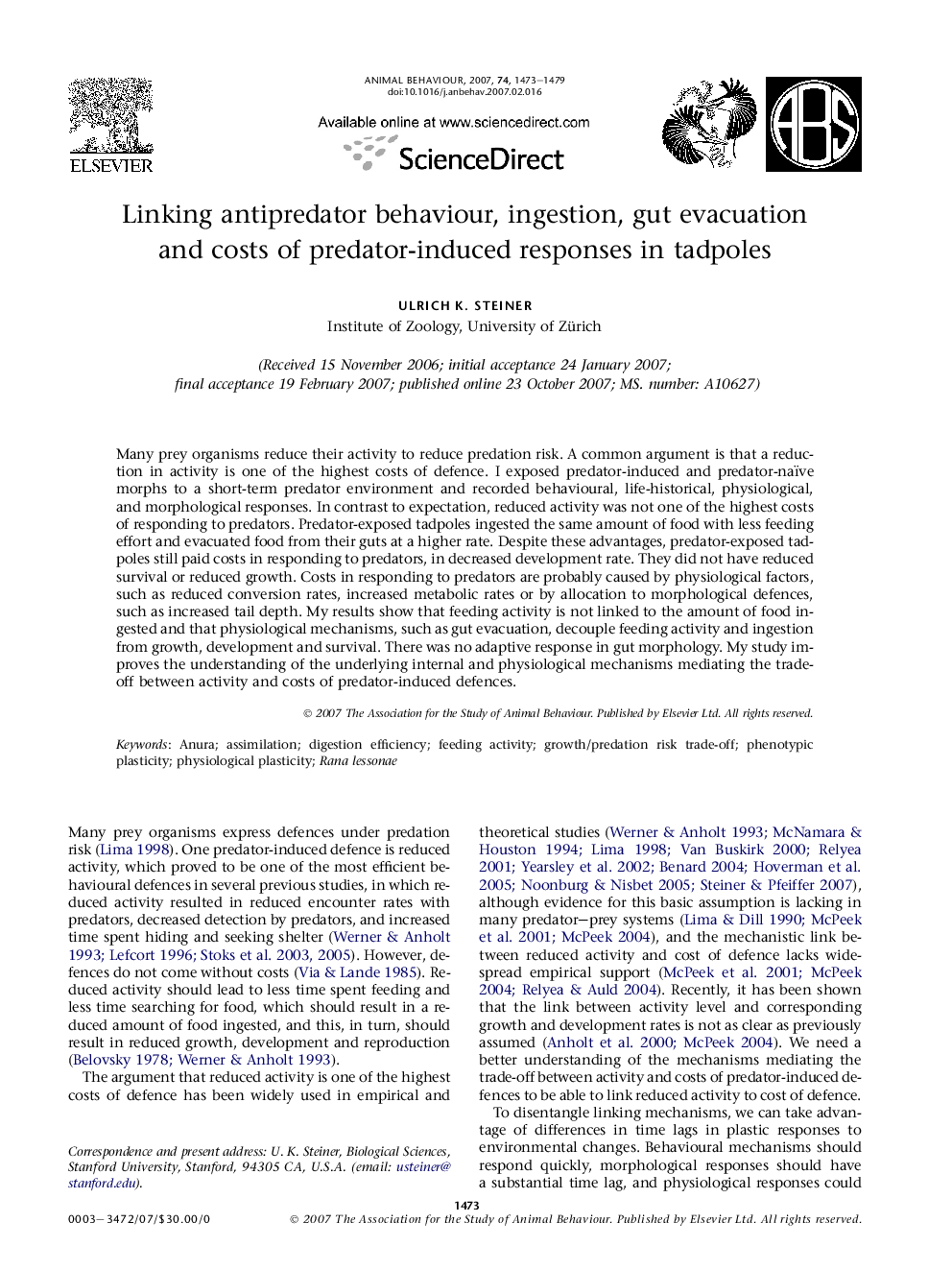| کد مقاله | کد نشریه | سال انتشار | مقاله انگلیسی | نسخه تمام متن |
|---|---|---|---|---|
| 2418302 | 1104342 | 2007 | 7 صفحه PDF | دانلود رایگان |

Many prey organisms reduce their activity to reduce predation risk. A common argument is that a reduction in activity is one of the highest costs of defence. I exposed predator-induced and predator-naïve morphs to a short-term predator environment and recorded behavioural, life-historical, physiological, and morphological responses. In contrast to expectation, reduced activity was not one of the highest costs of responding to predators. Predator-exposed tadpoles ingested the same amount of food with less feeding effort and evacuated food from their guts at a higher rate. Despite these advantages, predator-exposed tadpoles still paid costs in responding to predators, in decreased development rate. They did not have reduced survival or reduced growth. Costs in responding to predators are probably caused by physiological factors, such as reduced conversion rates, increased metabolic rates or by allocation to morphological defences, such as increased tail depth. My results show that feeding activity is not linked to the amount of food ingested and that physiological mechanisms, such as gut evacuation, decouple feeding activity and ingestion from growth, development and survival. There was no adaptive response in gut morphology. My study improves the understanding of the underlying internal and physiological mechanisms mediating the trade-off between activity and costs of predator-induced defences.
Journal: Animal Behaviour - Volume 74, Issue 5, November 2007, Pages 1473–1479